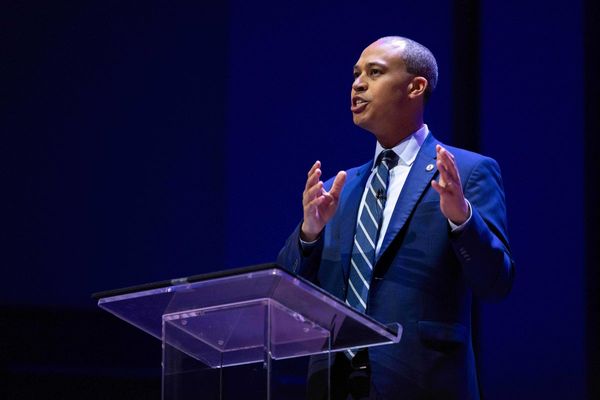Drug giant Pfizer inked a $5.4 billion deal Monday to buy Global Blood Therapeutics, confirming rumors that sent GBT stock skyrocketing last week.
The deal could add a peak $3 billion in worldwide sales to Pfizer's coffers, the companies said in a news release. That includes GBT's approved treatment for sickle cell disease, Oxbryta, and its earlier-stage pipeline. In the second quarter, Oxbryta generated $71.6 million in sales, well above Wall Street's expectations for $65.7 million. Sales also grew by half year over year.
Prior to the announcement, SVB Securities analyst Andrew Berens said the deal could be mutually beneficial for the two companies. The deal encompasses enough premium to capture the value of GBT's pipeline in sickle cell disease and helps Pfizer accelerate top-line growth around 2025-30, he said in a report to clients.
"For Pfizer, the deal could add revenues toward the back half of the decade for what we see as a reasonable price," he said.
Under the terms of the deal, Pfizer will pay $68.50 in cash per share of GBT stock. On today's stock market, GBT shares jumped 4.3% to 66.60. Last week, GBT stock gained more than 88% over two days after rumors of the takeover appeared. Pfizer stock rose a fraction to 49.57.
GBT Stock: Expanding Pfizer's Rare Disease Efforts
The deal helps expand Pfizer's efforts in rare diseases. In the second quarter, treatments for rare diseases accounted for just 3% of Pfizer's total revenue.
Further, its biggest moneymaker in that division, Vyndaqel, could soon face competition from Alnylam Pharmaceuticals. Alnylam is testing a treatment or the same disorder in which abnormal protein builds up on the heart.
Oxbryta offers a "functional cure" for sickle cell disease, Berens said. In this disorder, patients' red blood cells are abnormally shaped and can't carry oxygen properly. Patients experience episodes of pain called vaso-occlusive crises. In addition to Oxbryta, GBT is working on treatments for these episodes.
Berens expects the deal to pass Federal Trade Commission scrutiny.
"We do not see antitrust issues given Pfizer's lack of presence in sickle cell disease," he said. He kept his outperform rating on GBT stock.
High Likelihood The Deal Closes: Analyst
Pfizer expects the deal to close in the fourth quarter.
"We see a high likelihood of closure and see the acquisition as a strategic fit for Pfizer, though find the attractiveness of assets and sickle cell disease as drawing others," RBC Capital Markets analyst Gregory Renza said in his note to clients.
Sickle cell is becoming an increasingly common target for biotech companies as its genetic cause is now better understood. Notably, Crispr Therapeutics and Vertex Pharmaceuticals are partnered on a gene-editing approach to the disease.
But the transaction includes a "no shop" provision, meaning GBT would be on the hook for a $271 million termination fee. If Pfizer breaks up the deal, it would cost the drug giant $326 million.
Renza kept his outperform rating on GBT stock.
Follow Allison Gatlin on Twitter at @IBD_AGatlin.







